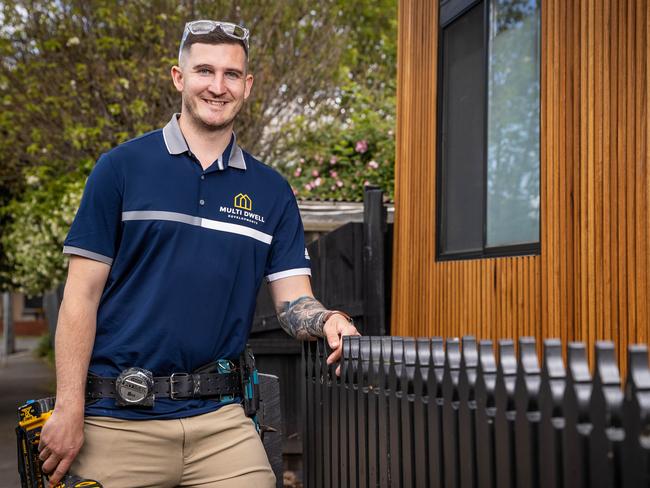MYOB study finds many Australians feel busy, but not productive
With Australia’s business productivity at a 60-year low, experts have revealed how to make life easier – and work more effectively.

SmartDaily
Don't miss out on the headlines from SmartDaily. Followed categories will be added to My News.
Responding with “busy” seems to be automatic for so many people these days when asked “how are you?” but recent research suggests that while many people may feel this way, they are not necessarily productive.
A MYOB study of more than 1000 Australian workers and business owners finds that while half of those surveyed always feel busy, one in five only feel productive for three days of a working week.
The study also finds nearly one third of workers spend only two to five hours each week on work-related admin tasks, with 60 per cent saying they use time outside of work to complete these tasks.
This lack of productivity is coming at not only a cost to individuals but to businesses and the economy, according to MYOB’s general manager for small business, Emma Fawcett.
“A recent report from the Productivity Commission found Australia’s business productivity is at its lowest in 60 years and has led to low business and wages growth,” Fawcett says.
“As we come to the end of the year and start to see life get back to normal, it’s vital we put better structures in place to not just feel busy, but to feel productive.”
CUT OUT DISTRACTIONS
Productivity expert and assistant professor in business and law at RMIT University Olga Kokshagina says to be productive we need to control our schedule as opposed to it controlling us.
“Roughly 306.4 billion emails were sent each day in 2020 and it is estimated we touch our phones more than 2000 times per day (as per research conducted in 2016 – we can only imagine that this number is higher in 2021),” says Prof Kokshagina.
“All these little distractions mean that it is hard to sit and finish one task without being distracted; we are always doing little bits of tasks, which leads to feeling we’ve not really completed anything.

“When we are getting our work done, these distractions can take us out of the first task we were focused on and are a time suck that leads to low productivity.
“Working smart is key in avoiding that unnecessary time suck.
“There are things we can do to reduce time taken on smaller admin tasks, whether that be sending invoices or sharing work in progress.
“Adopting digital tools takes back these small increments of time that can be spent in more productive ways.”
Prof Kokshagina says some of the biggest time wasters are “checking emails, text messages and WhatsApp” as they “all take us out of the task we were doing and often make it hard to get back into the work”.
“Turn your phone on silent when you’re wanting to get a project finished, turn off notifications on your emails and deal with your emails during the designated timeslots,” she advises.
“It is also beneficial to plan your week in advance: you can have a 30-minute timeslot where you reflect on what has to be achieved during the week and reflect on this on Friday to help you acknowledge what worked well, what can be improved.”

ADOPT THE RIGHT TECHNOLOGY
When Jason Samargis started his renovations and building business, Multi Dwell Developments, the Melbourne-based carpenter and builder identified admin as an area in need of improvement.
“Before Covid I was working with the worst software but when I started my own company, I started using MYOB and it made admin tasks so much easier,” Samargis says.
“During Covid we couldn’t really do much so I started sorting out a lot of invoices, setting up quotes for when we were good to go.
“I also did a lot of FaceTime and Skype interviews with clients.
“While I was at home, I was trying to just be productive.
“I’ve also got an app for when I think of something I need to remember, I write it straight in that.”
Originally published as MYOB study finds many Australians feel busy, but not productive





